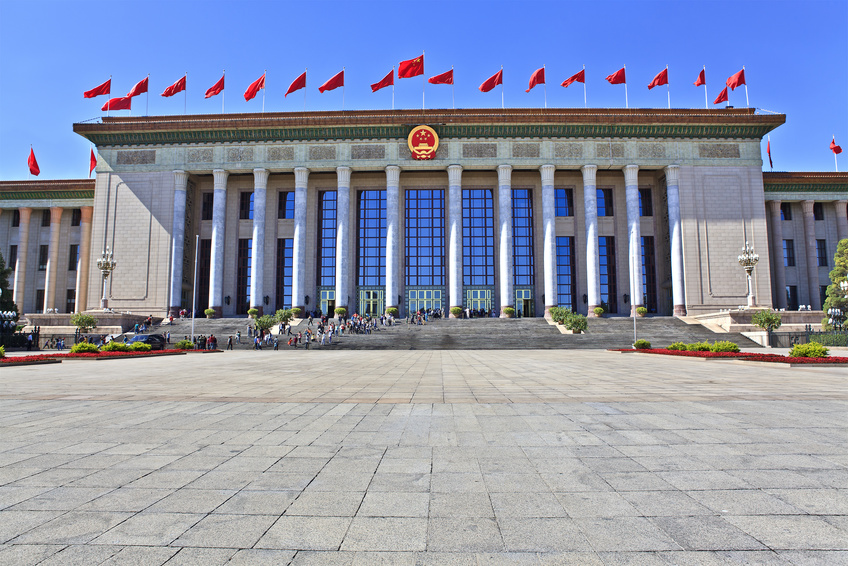This week we kicked off our Annual Compliance Conference with key antitrust compliance topics that are impacting businesses today. Specifically, we discussed antitrust risk and enforcement in relation to vertical agreements, and how to manage compliance risk in the context of transactions.
On 26 January 2024, China issued significantly higher merger filing turnover-based thresholds, with immediate effect. Notably, China has removed a hybrid threshold proposed in the June 2022 draft, which was based on both revenue and market value of target companies and purported to target high-value “killer” acquisitions.
On 24 June 2022, China’s National Peoples’ Congress approved far reaching amendments to China’s Anti-Monopoly Law which become effective from 1 August 2022 (“AML Amendments”).
Alongside the AML Amendments, the State Administration for Market Regulation has issued for public comment proposed updates to key implementing rules and regulations concerning cartels and vertical restraints, abuse of dominance, merger control and abuse of IP rights.
Of particular relevance to business operations in China and M&A activity, the AML Amendments include stricter penalties for antitrust violations; increased enforcement powers; revised thresholds for merger control; an express prohibition of hub & spoke arrangements; potential exemptions/defenses for certain vertical restraints including resale price maintenance, and continued scrutiny of the platform economy.
On 24 June 2022, China’s National People’s Congress approved far reaching amendments to China’s Anti-Monopoly Law which will become effective from 1 August 2022 (“AML Amendments”).
Alongside the AML Amendments, China’s competition regulator has published revised draft guidelines on a wide range of topics for public consultation. This reform package will have significant consequences for the future of merger control and antitrust enforcement in China.
Baker McKenzie is delighted to invite you to join us on 21 July 2022 for a webinar via Zoom, where our Baker McKenzie antitrust and competition specialists in Beijing and Hong Kong will provide you with a concise briefing on key considerations with respect to these reforms and practical implications for your business.
The Guide to Doing Business in China provides an introduction to selected aspects relating to investment and business operations in the People’s Republic of China under current Chinese laws and policy during the COVID pandemic, including a summary of important areas of concern to all investors in China: mergers and acquisitions, data privacy issues, antitrust and competition issues, taxation, employment, intellectual property protection, trade and import and export rules, financial services, as well as anti-bribery compliance and dispute resolution issues.
Globally, antitrust and regulatory regimes on data in the mobility sector are developing, but still inconsistently. This webcast provides legal guidance from North America, China and Europe on how companies can mitigate antitrust risks when developing a profitable new data monetization strategy.
The wide-ranging proposed amendments to China’s Antimonopoly Law (AML) (“Proposed Amendments”) were published for public comments immediately after being presented to China’s top legislature for the first reading. It is clear from the Proposed Amendments that China intends to continue to strengthen antitrust enforcement.
On 10 November 2020, China’s State Administration for Market Regulation (SAMR) published draft Anti-Monopoly Compliance Guidelines for the Platform Economy (“Draft Guidelines”) for public consultation.1
The Draft Guidelines clearly signal that stronger antitrust enforcement in China’s tech sector is likely. This appears to be driven by a desire on the part of the Chinese government to rein in the growing strength of internet platforms, and to encourage a more diverse market structure.
The Draft Guidelines are expected to be finalized by the end of this year or early next year.
On 18 September 2020, China’s State Administration for Market Regulation (SAMR) published the final version of the Anti-Monopoly Compliance Guidelines for Business Operators (Antitrust Compliance Guidelines)[1]. The guidelines provide a framework for how business operators should establish an antitrust compliance system and manage antitrust compliance risks in China. The Antitrust Guidelines are not mandatory but are indicative of the key aspects SAMR would expect to see in a good compliance programme.







